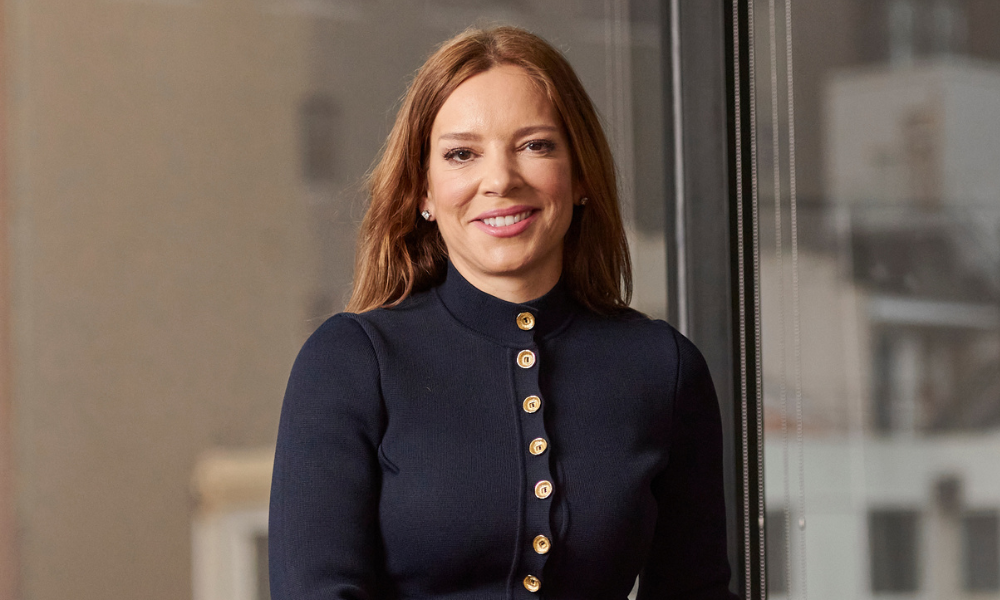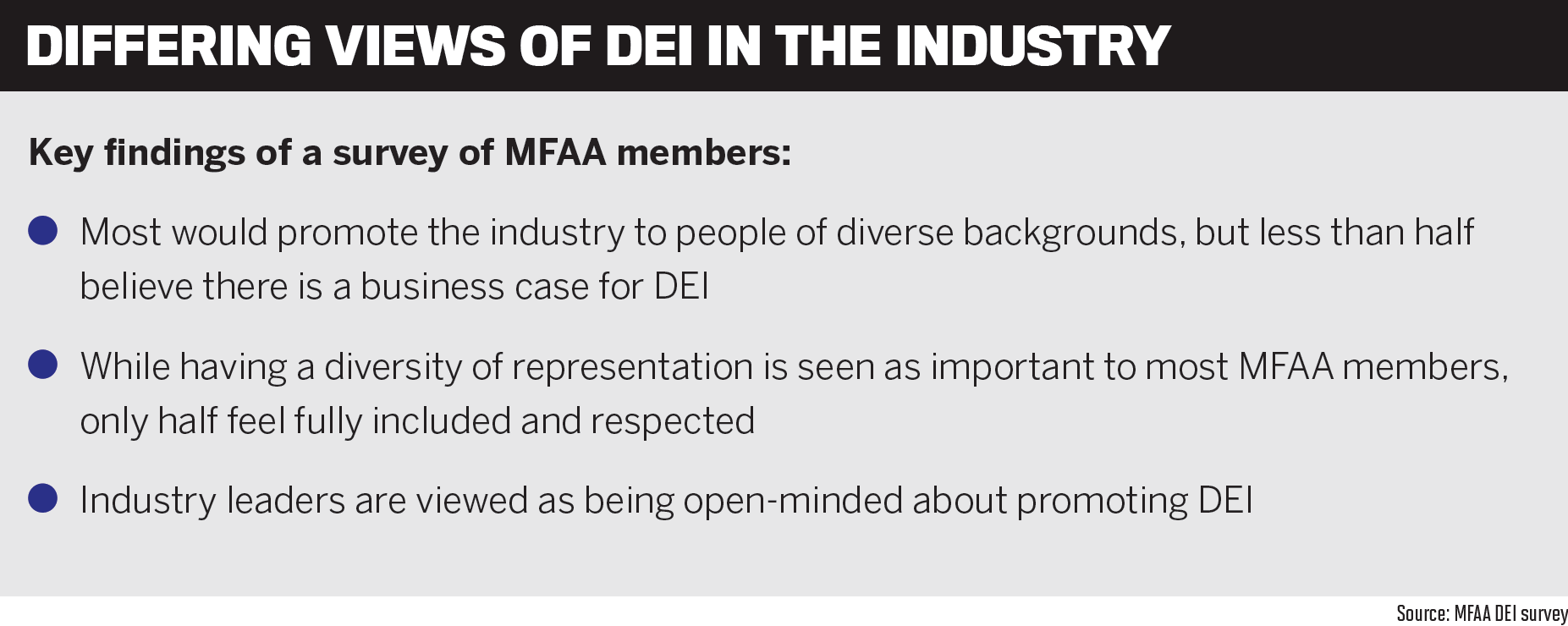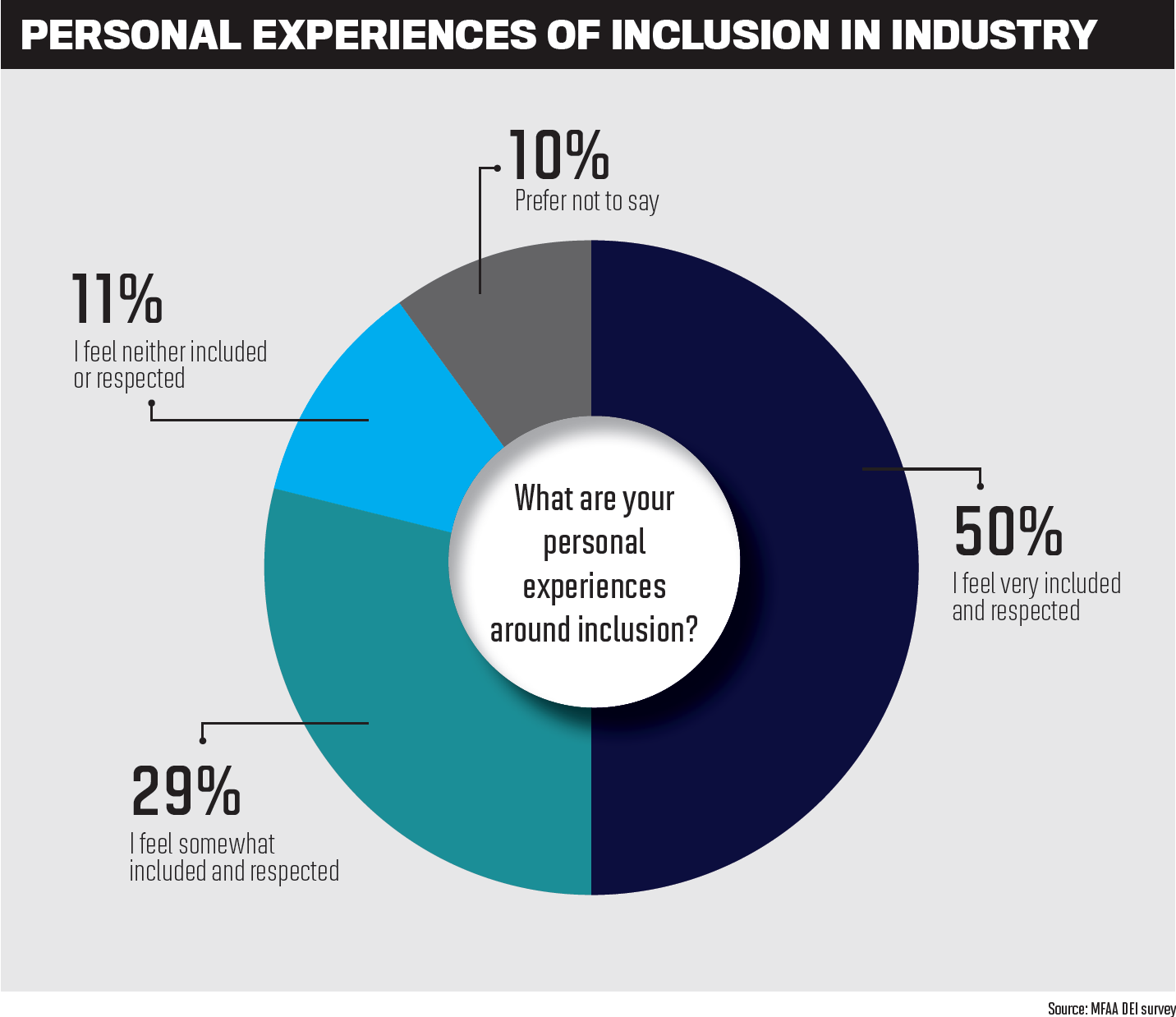MFAA's DEI survey highlight changes needed

Diversity, equity and inclusion in business isn’t new. It’s been around since the 1960s, and since that time there has been huge progress. It’s opened doors for countless individuals and changed perceptions of what people are capable of.
But, according to MFAA CEO Anja Pannek (pictured below), despite the extensive research and evidence that diversity is good for business, many people still feel excluded from the industry and unable to reach their full potential due to bias, discrimination, lack of access to training, and other factors.

The MFAA first began researching diversity in 2018, focusing on the declining number of female mortgage and finance brokers and working to address this through its Opportunities for Women program. The peak industry body has now broadened the scope of its research to encompass all aspects of DEI, with the aim of exploring and understanding the dynamics of DEI across the industry.
“This evolution in our approach reflects an understanding that addressing the challenges and barriers faced by a diverse array of individuals can significantly enrich the industry’s cultural and professional landscape,” says Pannek.
“Mortgage and finance broking has grown to be a key player in shaping the financial wellbeing of Australian families and business owners, and we want our industry to be sustainable into the future – and to continue to meet the diverse, evolving needs of the customers we serve.
“DEI is a part of that future, and we can’t leave it to chance.”
Upholding industry standards
Pannek says mortgage and finance broking isn’t solely predicated on loan applications or loan volumes; it’s built on the foundation of upholding standards and meeting the expectations of clients and the community.
“Today’s clients, and the clients of tomorrow, are looking more closely at the businesses and industries they buy from and work with, and they want to see inclusion,” Pannek explains.
“Creating an environment that offers genuine opportunities to people from all walks of life will keep our industry and in good stead with their clients and community.”
Brokers have worked hard to build trust with Australians, as can be seen by the steady increase in mortgage broker market share to 74.1%, particularly since the introduction of the best interests duty.
“We all have the responsibility of upholding this trust by upholding standards, always putting clients first, and through an industry-wide commitment to DEI,” says Pannek.

DEI Summit 2024
The MFAA’s commitment to DEI kicked off with an industry-first DEI Summit held in Sydney in May. This brought brokers, lenders, aggregators and other industry participants together to discuss and undertake a commitment to DEI.
“We want to bring everyone into the conversation and understand a multitude of different perspectives and experiences,” says Pannek.
The MFAA also announced the findings of its DEI survey at the summit. These showed that while most MFAA members believe industry leaders are open-minded about promoting DEI, less than half feel there is a business case for DEI. This suggests there is a gap between aspirational attitudes towards DEI and its practical application through business strategies.
“This discrepancy highlights the need for more concrete actions and measurable commitments to elevate the importance of DEI within the industry’s operational priorities,” says Pannek.
Reflecting on the Australian community, Pannek notes that this country is home to the oldest living continuous culture in the world, and that its modern history is built on immigration from all parts of the globe.
“We now embrace new traditions, new customs, and we have all benefited from this rich tapestry of the Australian population, even if we don’t realise it,” she says. Right now, that rich diversity of Australia can’t always be seen in the corporate world we are part of.
Pannek points to stats showing the make-up of ASX 300 company boards: only 9% of directors are not from Anglo-Celtic backgrounds, just four identify as LGBTQI+, and none are known to live with a disability.
In financial services, women make up more than half the workforce, but their representation among CEOs is just 10%.
“That’s just a couple of examples; the list is of course much longer. Needless to say, we are missing out on the contributions of the people we don’t see when we talk about these numbers,” says Pannek.
It’s widely acknowledged that the benefits of DEI range from improved financial performance to increased staff retention – as people who feel they can be their authentic selves are less likely to leave – and better customer service outcomes.

How diversity can benefit the industry
But why is DEI important in the mortgage and finance broking industry?
For Pannek, it’s about being able to tap into the wealth of different perspectives, experiences and skills that can drive innovation, improve client experience and continue to enhance the industry’s reputation in the community.
An emphasis on DEI can also help the industry attract and retain talent. Research from the Diversity Council of Australia shows that employees are more likely to stay at organisations that embrace diversity.
“The case for change is clear,” says Pannek.
However, she notes that while there is broad support for DEI initiatives across the industry, the MFAA’s survey revealed that many people hold different views.
But the association’s objective is not to dismiss the views of those who disagree with the concept of DEI. “By its very nature, DEI means welcoming diverse views into this conversation,” Pannek says.
“How any one individual feels about DEI can stem from a variety of places, including a lack of understanding, or their own personal experiences, and even possibly from fear or discomfort with change and what that means for them.
“We want to bring everyone into the conversation and understand all perspectives and experiences.”
A significant finding of the DEI survey is that only half of MFAA members feel very included and respected in the industry. Pannek says this is a concerning insight that underscores the significant work still required to build truly inclusive environments.
“It signals an urgent need for us to listen more attentively, engage in open and honest dialogues, and implement strategies that address these feelings of exclusion.
“DEI doesn’t have an end point; it’s something that needs to remain on the agenda so that our biases – which we all have – don’t go unchecked, so that people get the opportunities they deserve, and so that we can harness the talent that is out there and will make our industry stronger.
“At the MFAA, when it comes to DEI we have consciously chosen to lead by example, not just with motherhood statements, because we believe real action will enrich our industry. For example, we have committed to ongoing research on DEI within our industry; [we have] taken the panel pledge and will be held accountable that speakers at our events and panels we facilitate will encompass diversity.”
Pannek says the MFAA has also made a public commitment to beginning its own Reconciliation Action Plan journey in 2025.
“We can all be leaders in DEI, regardless of the position we hold – and I believe our industry will be stronger for it.”



